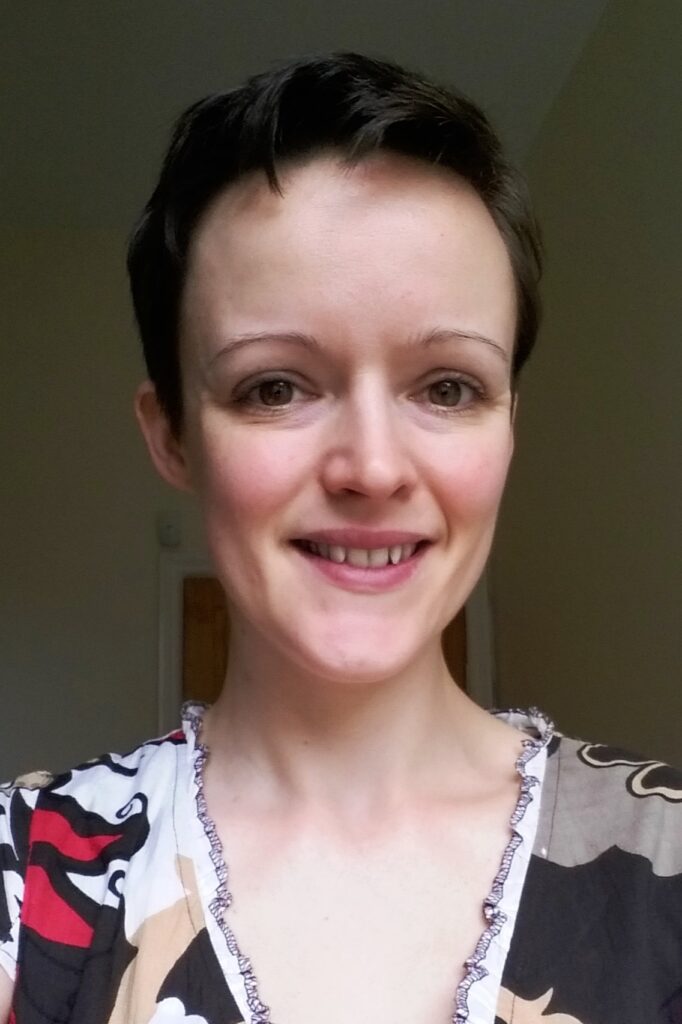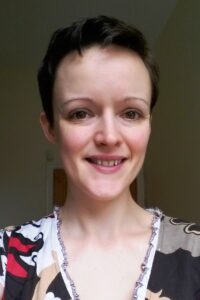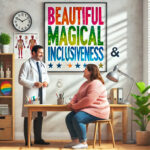Wanted: 100 research participants to compare anorexia nervosa types

Wanted: 100 research participants to compare anorexia nervosa types

Katie Linden
Young UK researcher, Katie Linden, needs your help, fast! She wants to gather 100 participants before the end of July to assist her investigation on whether people who have experienced anorexia without body dysmorphia show the same local processing bias as people with more ‘typical’ anorexia.
Here is the link.
To help interest you in taking part, Katie answers some questions:
Who can take part?
You can take part if you have a current or historical/past diagnosis of anorexia nervosa, including atypical anorexia nervosa. You must also be over the age of 18, and have no visual impairments that cannot be corrected with glasses or contact lenses, and have a BMI over 16.
I’m particularly interested in comparing the responses of people who have experienced non-fat phobic anorexia. with people who have experienced more ‘typical’ anorexia that involved body dysmorphia.
What do I have to do?
You will fill out a few demographic questions, a questionnaire on processing styles, and complete a brief cognitive task. This part of the study should take around 15 minutes. If you are willing to provide your email address, a further cognitive task will be emailed to you which will take another 15-20 minutes.
It is very important that you complete this study on a computer with a keyboard (desktop, laptop, or notebook) rather than a tablet or mobile phone, as one of the cognitive tasks requires you to press certain keys, and this may not be recorded accurately on a touchscreen.
What is involved?
The research involves some questions about you (age, gender, which type of anorexia you have had, etc), a questionnaire and two computerised tasks which assess certain aspects of the way your brain processes information.
What outcome do you hope to achieve?
There has also recently been debate over whether anorexia without body dysmorphia is a legitimate type of anorexia, or whether it should be classified as something else. This research is designed to see how the two types of anorexia compare on a cognitive level, to help determine whether they are the same or different types of eating disorder.
When do you need to hear from respondents and when do you expect an outcome?
The research will run until the end of July this year, so it will be great if you can take part as soon as possible. I will have the responses analysed and written up by mid-August, and anyone wanting a basic summary of what was found can request one via email.
Why are you undertaking this research?
I’m partly motivated to investigate this topic because non-fat phobic anorexia is very under researched. Cognitive processing style has been studied extensively in anorexia in general, but the only study that has looked at differences and similarities between subtypes looked at restricting versus binge/purging anorexia, so my study hasn’t been done before. I also have personal experience in this area, as I’m in recovery from non-fat phobic anorexia, and I know of several people who have struggled in treatment because they felt like clinicians were trying to squash them into the box of ‘typical’ anorexia when it really didn’t fit. All of this tells me that we need to know more!
Where are you based?
I live in Newcastle upon Tyne, in the North East of England, and my research is being conducted as part of an MSc Psychology at Northumbria University.
BACKGROUND
Katie shares this interesting background to her research – it makes me think that the search for effective treatments for eating disorders is in good hands as new generations of researchers enter the field:
Most of you will know about the links between anorexia and autistic spectrum conditions, in that both conditions seem to share a common cognitive profile: difficulties in social situations, rigid adherence to rules and routines, and detail focus at the expense of the bigger picture. Detail focus is otherwise known as weak central coherence, or a local processing bias, in research.
The usual ‘default’ in the general population is a global processing bias – you look at a whole scene first, then focus in on details – whereas people with anorexia and autism tend to see details first, and to get stuck there. Some authors have also suggested that getting stuck on details may give rise to poor body image in anorexia – along the lines of, if you are only looking at tiny areas of your body rather than processing the global whole, everything would look out of proportion.
This is part of the rationale for novel treatments like cognitive remediation therapy, which focuses on altering cognitive styles – like a local processing bias – rather than cognitive context – like “I’m too big and it’s intolerable”.
My research will look at whether people who have experienced anorexia without body dysmorphia show the same local processing bias as people with more ‘typical’ anorexia. If a local processing bias is only common to people with body dysmorphia, this might suggest a causal link, whereas if people with anorexia without body dysmorphia share processing styles, it might be that processing style is a more general risk factor for developing/maintaining anorexia, and body image disturbances are just one possible symptom of this.
Reasons for the focus on anorexia
- I have deliberately chosen anorexia as the focus of the study as there is an extensive history of, and body of research into, anorexia without body dysmorphia (non-fat phobic anorexia), in comparison to the absence of body dysmorphia in other EDs. As this is just a year long project I had to be a bit narrow in my focus.
- I’ve also asked about subtypes of anorexia rather than ARFID versus anorexia as I genuinely believe, and think I have a fair amount of evidence to back this up, that anorexia can exist without body dysmorphia.
- In ARFID there isn’t a fear of weight gain, restriction is based on sensory issues or past negative experiences of food like choking episodes. This still leaves a gap in the DSM, because it is quite possible for people to be terrified of weight gain itself without the ‘reason’ being body dysmorphia. Showing a common cognitive profile between subtypes of AN would strengthen the argument that anorexia needs to be seen as a more diverse condition, rather than those experiencing anorexia without fat phobia being subjected to suspicious clinicians accusing them of lying.
- One of the demographic questions in the first part of my study asks for the participant’s weight. This is because low weight can heighten detail focus, and while I ideally want people to be able to classify themselves as recovered or currently unwell, there is a tendency for some people to insist it is perfectly possible to be fully recovered at a BMI of [insert unrealistically low thing here], and I need to control for that somehow.
- Likewise, the ethics board insisted that I not use anyone with a BMI under a certain point due to issues around informed consent. If you or anyone you share this with is uncomfortable with sharing weight, either don’t answer that or alternatively, I’m not going to know if you/they make a number up.
- Who should I contact if I have questions about this study?
Contact the researcher, Katie Linden, if you have any questions about this study (katie.linden@northumbria.ac.uk)
This study and its protocol received full ethical approval from the Department of Psychology Ethics Committee in accordance with Northumbria University and governance regulations.





